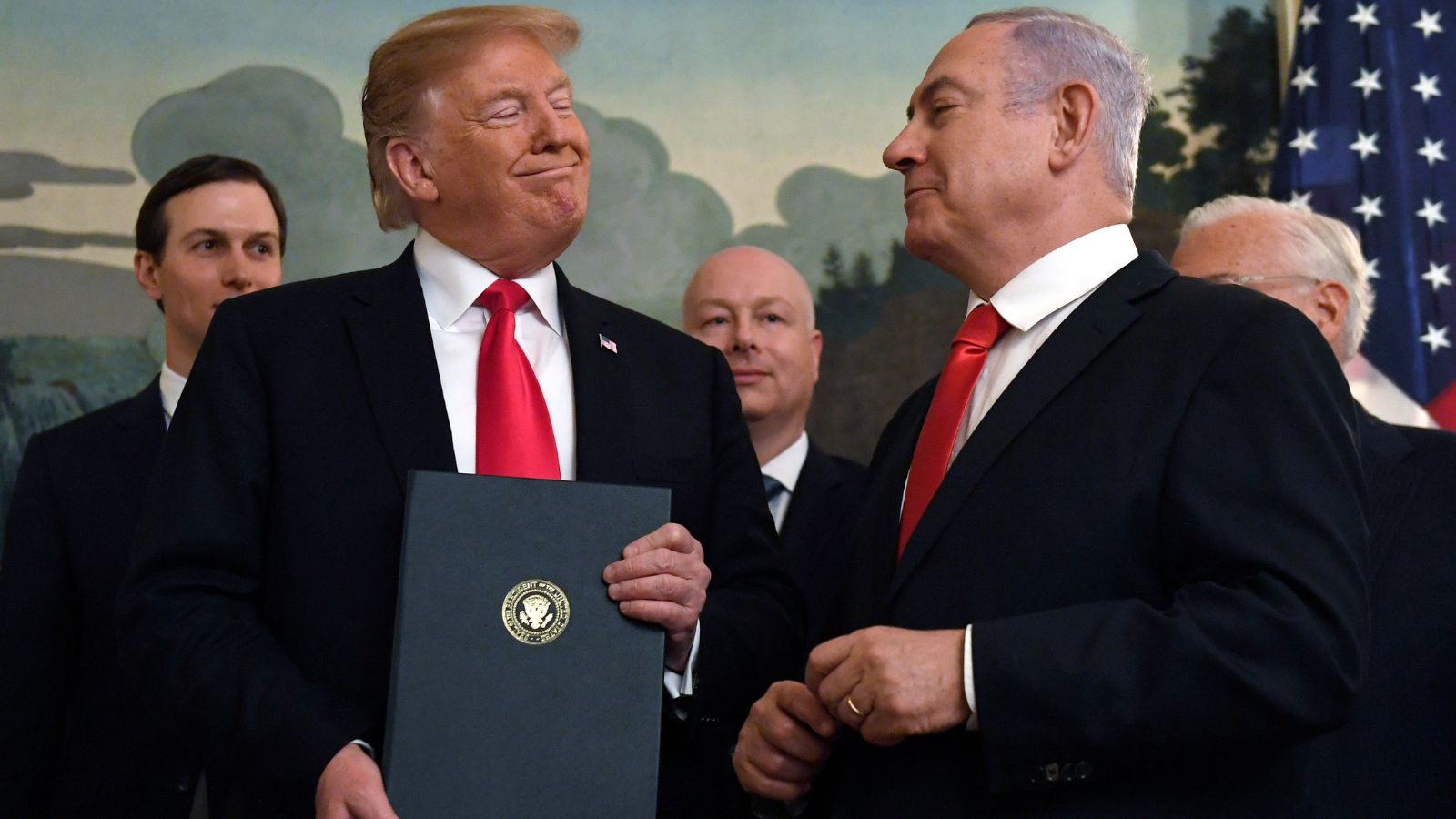To little surprise, all sides claimed victory Tuesday morning after US President Donald Trump announced a ceasefire between Israel and Iran. But even before the dust settled in the Middle East, missiles were still flying, and the long-term strategic winners and losers remain unclear.

In a characteristically dramatic post on Truth Social, Trump claimed that both sides had come to him “almost simultaneously, and said, ‘Peace!’” He said he immediately knew that “the time was now,” and envisioned a future for Israel and Iran that was “unlimited, & filled with great promise.” He signed off with: “God bless you both!”
US: ‘Obliterated’ and now playing peacemaker
The United States claims to have severely degraded Iran’s nuclear capabilities with precision strikes over the weekend. President Trump declared Iran’s facilities “completely and totally obliterated” and warned of worse consequences if Tehran didn’t seek peace. Yet, mindful of the political costs of a prolonged war, Trump chose not to retaliate after Iran struck the US base in Qatar, especially since Tehran issued a warning in advance and caused no casualties.
Trump said that 13 of the 14 Iranian missiles fired at Al Udeid had been downed, that no Americans there had been killed or wounded, and that the damage had been minimal.
Trump even thanked Iran “for giving us early notice, which made it possible for no lives to be lost, and nobody to be injured.”
“This was a win-win,” Trump said. With no American losses, a clear show of strength, and now taking credit for brokering peace, the US emerges from this phase with political and strategic points scored.
Story continues below this ad
“They’ve gotten it all out of their ‘system,’ and there will, hopefully, be no further HATE,” Trump said.
Soon after, Trump announced that a ceasefire was imminent between Iran and Israel, though that was thrown into uncertainty on Tuesday morning.
Israel: Achieved ‘all objectives’ of its military operation
Israel’s weeklong offensive ahead of the US strikes gave it clear air dominance, degrading Iran’s air defences and eliminating senior IRGC leaders. The country not only delivered operational blows but also succeeded in drawing Washington into the conflict, something it had pushed for over days of solo engagement.
Israeli Prime Minister Benjamin Netanyahu has accepted the ceasefire proposal and will deliver a formal statement later on Tuesday, his office announced.
Story continues below this ad
In a statement, the Prime Minister’s Office said Israel had achieved “all objectives” of its military operation against Iran.
“Israel has removed a dual immediate existential threat – both in the nuclear and ballistic missile fields,” the statement read.
“In light of the achievement of the operation’s objectives, and in full coordination with President Trump, Israel has agreed to the president’s proposal for a bilateral ceasefire,” it added.
Tel Aviv-based political analyst Ori Goldberg told Al Jazeera that Netanyahu’s claim of achieving all objectives before the ceasefire is “ridiculous”.
Story continues below this ad
“It is really unclear, to say the least, what Israel’s goals were,” he said, noting Israel’s shifting rhetoric from dismantling Iran’s nuclear programme to regime change.
Goldberg added that Netanyahu had little choice but to support the ceasefire given the damage from Iranian strikes and pressure from the Trump administration.
“Netanyahu decided to gamble on Trump coming to his rescue. Trump did, and Netanyahu is therefore obligated to assist in Trump’s goal, which was and still is ultimately securing the regional deal and not launching a regional war.”
That shift from “unilateral” Israeli action to a joint US-Israel front boosts Prime Minister Netanyahu’s standing at home and abroad. The alignment with Trump, and the image of coordinated might, allows Tel Aviv to claim it helped dismantle both nuclear and missile threats from Iran.
Story continues below this ad
Iran: Resistance without escalation
Facing immense pressure after US airstrikes, Iran carefully calibrated its response. Supreme Leader Ayatollah Khamenei reportedly ordered a strike on a symbolic but low-risk target: Al Udeid Air Base in Qatar — the US’ largest in the region, but on friendly soil. The goal was clear: save face, avoid escalation.
As per a report by, The New York Times, several hours before launching its missile strike on the US base in Qatar, Iran sent advance warnings through intermediaries, prompting Qatar to close its airspace and allowing US forces to prepare.
Publicly, Iran framed the attack as justified retaliation. A military spokesperson said the Revolutionary Guards had carried out the strike, declaring, “We warn our enemies that the era of hit and run is over.”
State media broadcast patriotic songs alongside dramatic footage of missiles lighting up the Qatari skies, hailing it as a moment of national strength.
Story continues below this ad
Iran’s advance warning allowed both the US and Qatar to prepare, preventing casualties. Trump later praised this, describing the response as “very weak” but effectively countered — reinforcing that the US saw no reason to retaliate. Iran, meanwhile, continued firing on Israel up to the last minute before the ceasefire, cementing its narrative of resistance.
Iran’s Supreme National Security Council on Tuesday confirmed it had agreed to the ceasefire but warned that trust in Israel remained absent. The council stated that Tehran still had its “hands on the trigger” and was prepared to “deliver a decisive … response to any violating act”.
The New York Times quoted Ali Vaez, Iran director at the International Crisis Group, saying all three sides now had their own version of victory — and had avoided spiralling into a broader conflict.
“The United States can say it has set back Iran’s nuclear program,” Vaez said. “Israel can say it has weakened Iran, a regional adversary, and Iran can say it has survived and pushed back against much stronger military powers.”
































